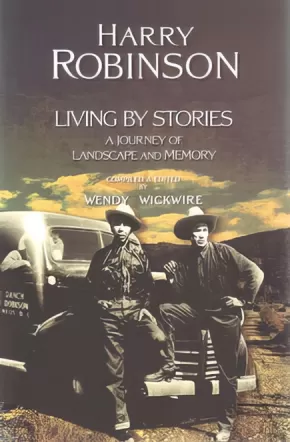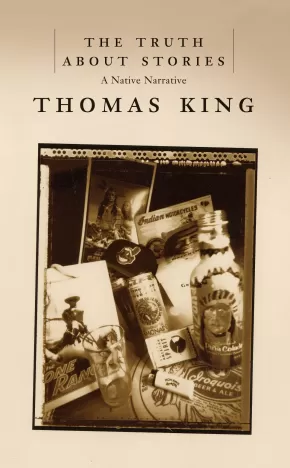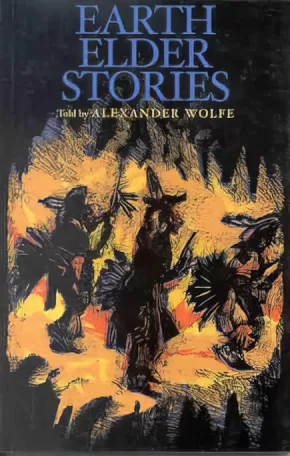Language
Synopsis:
Following on two previous collections— Write It on Your Heart: The Epic World of an Okanagan Storyteller (1989) and Nature Power: In the Spirit of an Okanagan Storyteller (2004)—Living by Stories is the third volume of oral narratives by Okanagan storyteller Harry Robinson. This third collection documents how the arrival of whites forever altered the Salish cultural landscape.
Living by Stories includes a number of classic stories set in the “mythological age” about the trickster/transformer, Coyote, and his efforts to rid the world of bad people— spatla or “monsters,” but this new volume is more important for its presentation of historical narratives set in the more recent past. As with the mythological accounts, there is much chaos and conflict in these stories, mainly due to the arrival of new quasi-monsters—“SHAmas” (Whites)—who dispossess “Indians” of their lands and rights, impose new political and legal systems, and erect roads, rail lines, mines, farms, ranches and towns on the landscape.
With permission from Harry Robinson, Wendy Wickwire began recording Robinson's oral stories in 1977. Robinson took his role as a storyteller very seriously and worried about the survival of the oral tradition and his stories. “I’m going to disappear”, he told one reporter, “and there’ll be no more telling stories.”
Review
Whenever I need to be reminded that language is magic and that stories can change the world, I go to Robinson.
- Thomas King
Additional Information
288 pages | 6.00" x 9.00"
Stories from Harry Robinson
Edited and compiled by Wendy Wickwire
Synopsis:
"Stories are wondrous things," award-winning author and scholar Thomas King declares in his 2003 CBC Massey Lectures. "And they are dangerous." In his 2003 Massey lectures, award-winning author and scholar Thomas King looks at the breadth and depth of Native experience and imagination.
Beginning with a traditional Native oral story, King weaves his way through literature and history, religion and politics, popular culture and social protest, gracefully elucidating North America's relationship with its Native peoples.
Native culture has deep ties to storytelling, and yet no other North American culture has been the subject of more erroneous stories. The Indian of fact, as King says, bears little resemblance to the literary Indian, the dying Indian, the construct so powerfully and often destructively projected by White North America. With keen perception and wit, King illustrates that stories are the key to, and only hope for, human understanding. He compels us to listen well.
Reviews
"Trust a novelist and English professor to get to the heart of how stories and storytelling shape our perceptions. This is a wonderful study of the power of words." — Booklist
"A collection of thought-provoking essays examining the importance of the oral tradition. Storyteller Thomas King addresses Native cultural concerns and their primal link to storytelling. Intriguing and entertaining. Highly recommended for all tribal college collections and literature classes."— Tribal College Journal
"What is revealed in this graceful, even seductive book of essays about storytelling by the esteemed Cherokee novelist, radio personality, university professor, and Canadian émigré is that what is as important as the stories we tell about the world are the ways in which we interpret those stories." — World Literature in Review
"King’s addresses artfully combine literary and cultural criticism, traditional Native American stories, and personal experience." — The Bloomsbury Review
Educator Information
Essay series that is a study of First Peoples' storytelling in North America.
Grades 10-12 English First Peoples Resource for various units.
Curriculum Connections: English, Indigenous Studies, Civics and Careers, History, Humanities and Social Sciences.
Additional Information
208 pages | 5.08" x 8.00"
Synopsis:
Alexander Wolfe is a Saulteaux/Ojibwa storyteller and the keeper of his family's oral history. These stories belong to his family and include accounts of how the descendents of Pinayzitt, a Saulteaux leader who lived in the Northwest Territories of Canada and the Great Plains of the United States in the 1800s, lived on the land, survived the smallpox and flu epidemics, signed treaties, and were confined to reservations.
The stories blend history with legend and prophecy, giving both the equal weight they occupy in Native oral tradition. In their retelling, Wolfe carries out his responsibility of passing on his family's stories to the next generation, as well as encouraging Natives to record their histories and non-Natives to understand the significance and lessons of these tales.
Earth Elder Stories has proven an excellent resource for students of Native Studies, history, linguistics, and literature.









